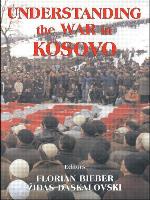The war in Kosovo has been a defining moment in post-Cold War Europe. Kosovo has great importance beyond the Balkans as the most ambitious attempt of the international community to prevent internal conflicts and rebuild a society destroyed by war and "ethnic cleansing." As the danger of ethnic conflict prevails in the region and elsewhere around the world, the experience of Kosovo offers important lessons. This is a comprehensive survey of developments in Kosovo leading up to, during and after the war in 1999, providing additionally the international and regional framework to the conflict. It examines the underlying causes of the war, the attempts by the international community to intervene, and the war itself in spring 1999. It critically examines the international administration in Kosovo since June 1999 and contextualizes it with the relations of Kosovo to its neighbours and as part of the larger European strategy in Southeastern Europe with the stability pact. It does not seek to promote one interpretation of the conflict and its aftermath, but brings together a range of intellectual arguments from some 16 researchers from the Balkans, the rest of Europe and North America.

